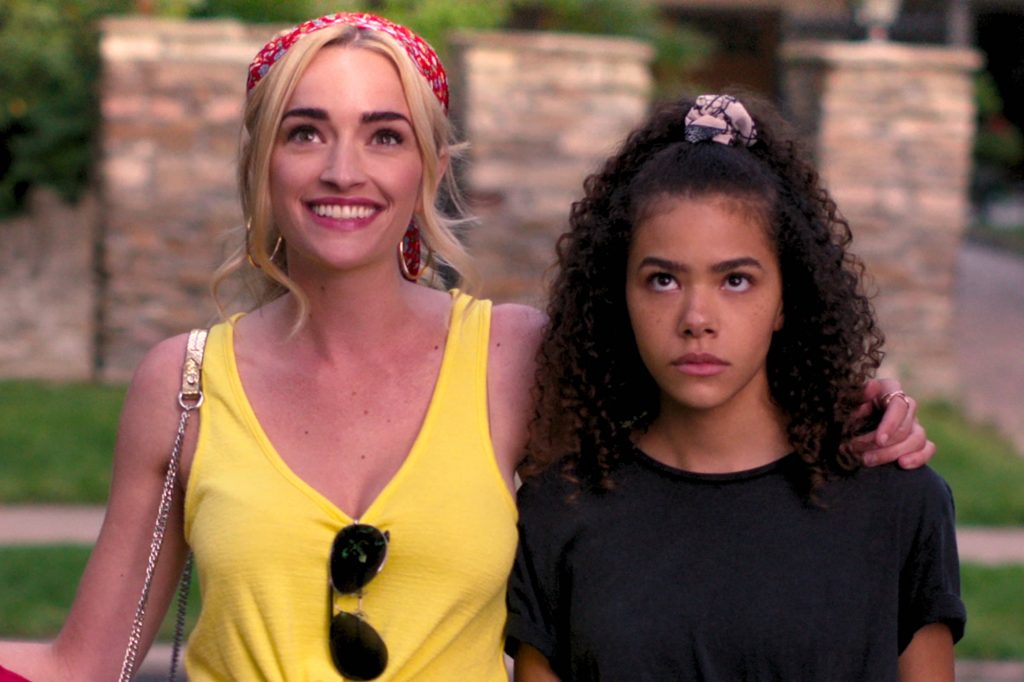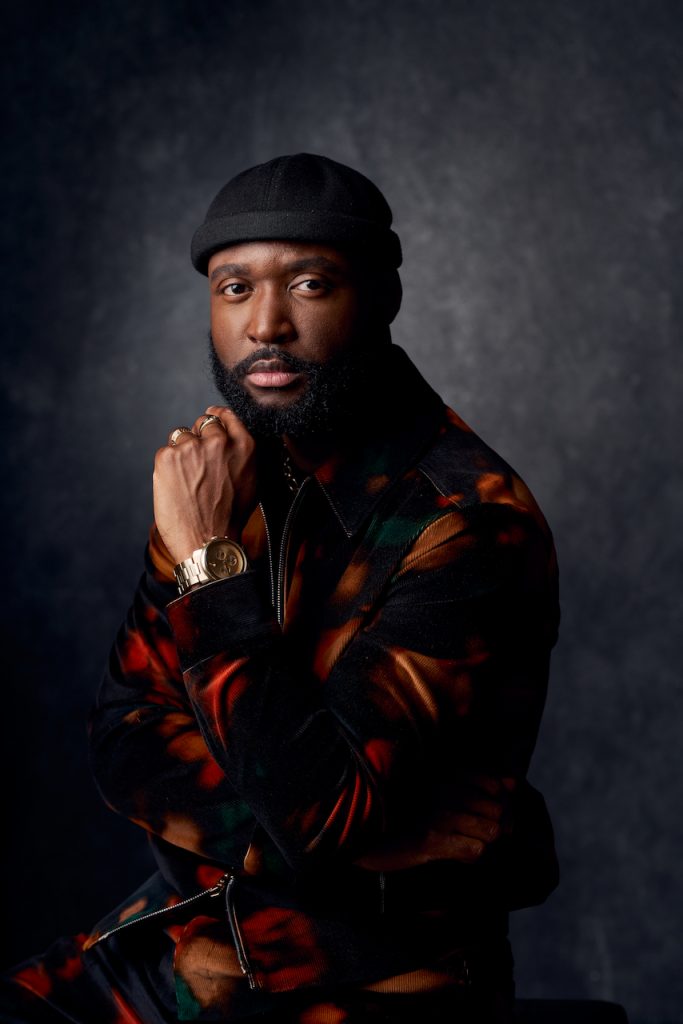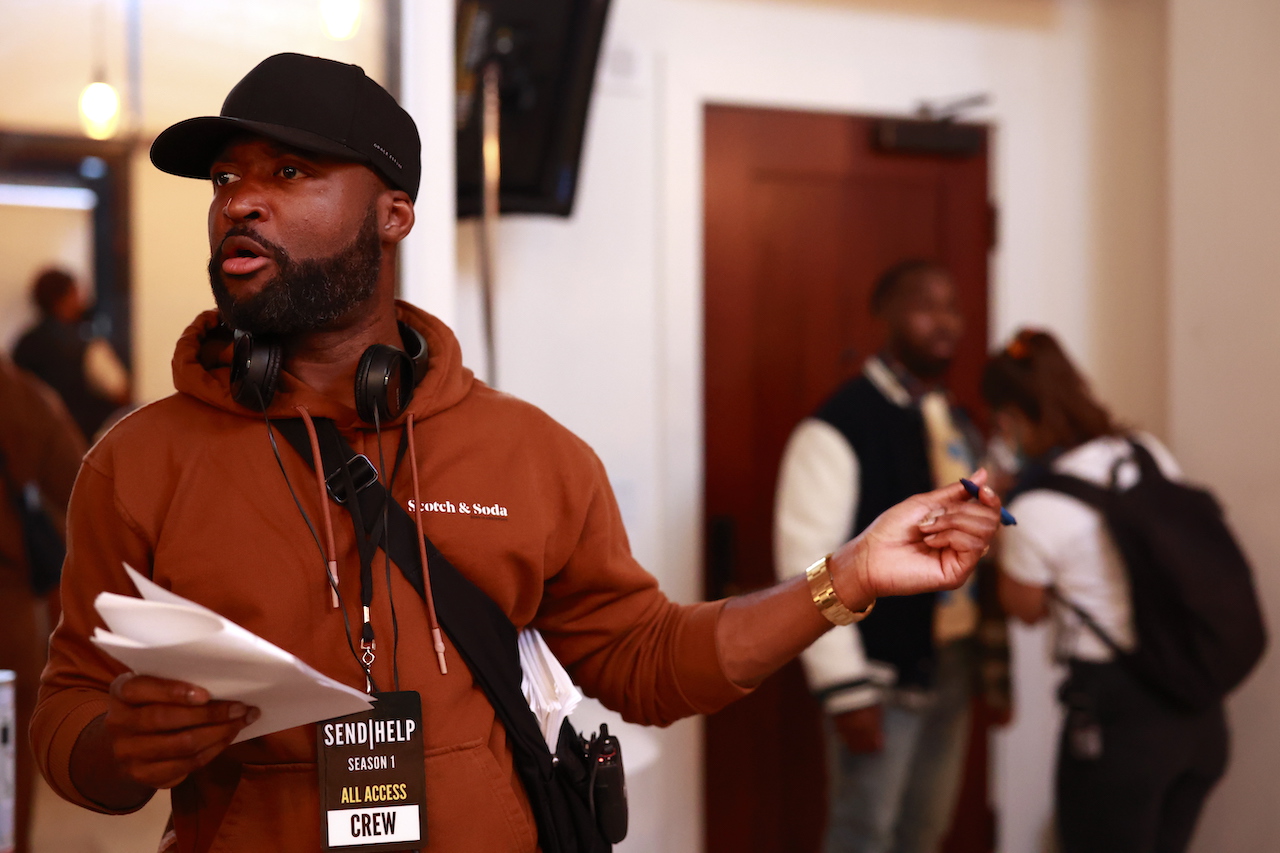Mike Gauyo (Ginny & Georgia, Insecure) cut his teeth in television as a production assistant on reality TV which led to paid podcast and webseries gigs, which further led to a writers’ assistant job on Claws. Through a series of recommendations, he landed a writing spot on Ginny & Georgia.
Being on set provided Gauyo with valuable insight into the production process, which influenced how stories are constructed in the TV writers’ room. “I looked at the actors’ needs, strengths, and weakness during the writing process.” Being on set affected the production logistics, but not the creative process.
Being in a TV writers’ room is a nuanced process that extends beyond breaking stories. It refers to the dynamics between the writers. “It taught me to collaborate with other writers. It allowed me to pitch ideas and be receptive to the ideas of others,” Gauyo continued.
Each idea birthed in the writers’ room is of the writers’ room and not of a particular writer
Mike Gauyo valued his time writing on the BSU (Black Student Union) web series early in his career. “It’s a good entry point for many writers into television.” Web series such as Insecure, Black Girl, and Broad City are famous web series for being adapted into TV shows. “Short form content can provide you with IP.” Although it’s desirable for it to be expanded onto bigger platforms. web series are a valid art form in their own right.

Georgia (Brianne Howey) Ginny (Antonia Gentry) in Ginny And Georgia
Being part of the Ginny & Georgia TV writers’ room was a quantum career step up for Mike. “Everyone was paid staff. I spent some time trying to figure out everyone’s function in the beginning. I also got to build a familial team in the Insecure room via the water cooler talks, outdoor breaks and side conversations.”
Gauyo met Issa Rae creator of Insecure while she was making a short film on pay equality. He worked as a production assistant on that show. Issa reached out to various writers to create a writers’ room for the film. Although Mike wasn’t chosen, he contacted her afterwards regarding a production assistant job on the show, which he got. It pays to ask.
The Voice
Mike spoke about his writing. “My voice is a collection of my experiences. Where I grew up, where I come from, the people in my environment, and my adolescence became my voice. How you deal with trauma and joy and how you interact with others also becomes your voice. It’s what makes you unique and authentic. So don’t be afraid to speak your mind.”
“You’re put into the writers’ room because of what you bring to the space,” he continued. “Your voice provides a diversity of thought in the writers’ room.” That’s why it’s important to have people from all walks of life to the room to spark debate on the show being written.
Mike Gauyo also created his own company, appropriately called, Black Boy Writes Media, to push his brand that he chooses to identify with. He believes this is an essential part of building a screenwriting career. “Writers are self-employed and we must sell ourselves.” Careers extend beyond the keyboard.

Mike Gauyo. Photo by The Bryce Studios
Writers need to have two key things in mind when writing. “Not only are you writing stories for yourself, you need to have an awareness that you’re speaking to audiences.”
“Writers need to hone in on what they’re trying to say, what is their purpose or mission,” Mike continued. “I like everything I write to have some underlying idea that speaks to our community that makes you think or highlights and amplifies the voices of marginalized individuals.”
My purpose is to educate and to entertain
Gauyo is mindful of telling very unique stories with a universal message to fulfil his writing purpose. “You can still tell a story that doesn’t mirror another person’s story who looks nothing like you and still understand their struggle. This brings us closer together.”
Developing your writing brand is a work in progress that evolves over time. Mike consciously inserted the term “Black” in his website name because it’s an umbrella term that defines him and his writing – that makes it specific. Black Boy Writes is a hyper-specific term.
Branding is more than a public perception or image of you and your work. It needs to originate and represent you as a writer. “Everything in my brand comes from me, but I speak to anything from that point.”
Mike Gauyo’s activities further extend to supporting under-represented voices via a mentorship program. “It’s for writers who wouldn’t normally have the opportunity to be seen. We hear about the lack of diversity among writers and my program is aimed at filling that gap by providing them with access to the wider industry.”
You can be a talented writer, but if people in hiring positions can’t find you, or know what you’re writing, you won’t have a writing career.
Can Non-Black People Tell Stories About Black People?
Mike Gauyo nods a resounding yes – with caveats. So long as the people telling them have deeply immersed themselves in the culture and truly understand the nuances of black life. If they write stories based on their perception of black life, they will inevitably fail.
Black writers (or the community) aren’t a monolith. Nor do they write in a single genre. “If I want to write an epic Western, I should be able to do that,” said Gauyo. “We [black people] do write in various genres and should be given a seat at the table to tell those stories.”
Mike Gauyo paraphrased an interview he heard regarding cultural appropriation, “Denzel Washington said ‘Steven Spielberg would do a great job on Goodfellas and Martin Scorsese would do a great job on Schindler’s List. However, you can speak to each experience a little bit better when you’ve experienced that feeling based on your lineage.”
Denzel Washington further elaborated on the issue of an authentic lived-in experience while referring to his film Fences. “You know the smell of a hot comb hitting your hair each morning. It’s a very culturally-specific experience and not so much about your race.”
Mike Gayo’s writing muse is stimulated by his environment and the people around me. “I was born in Haiti and raised in Boston Massachusetts, I’ve grown up in both the projects and middle class areas. I’ve been to an all black school and ab all white school. All this made me who I am.”
“I learned to code-switch before I knew what it was. I learned to adapt.” Code-switching refers to being a cultural minority and needing to conform to the majority cultural setting by adapting your behaviors.
Mike recalled attending an all black school filled mainly with African-American kids. Although they looked similar to the handful of Haitian kids, there were marked cultural distinctions – the way they spoke and carried themselves. “I had to live in that space and had to mirror the cultural norms to fit in.”
Needless to say, Mike has led a rich life. But not every life experience is worthy of becoming a story. “I think about how an experience makes me feel. If I can’t stop thinking about it, I start writing. There’s a lot there that I’m mining that needs to be told.“
